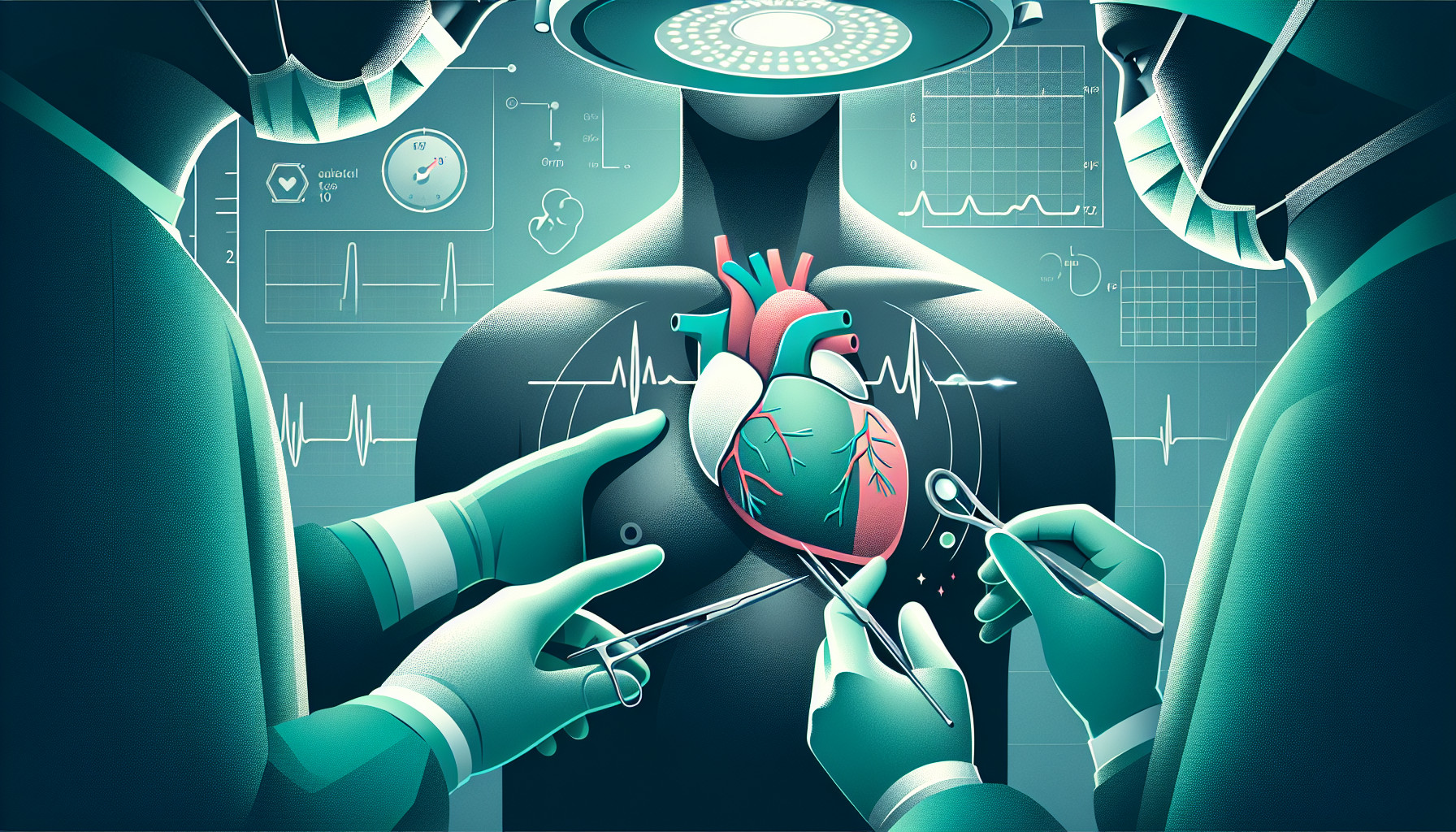Our Summary
This research paper focuses on several techniques used in heart surgery, specifically dealing with the mitral valve, which controls blood flow within the heart. The techniques discussed include edge-to-edge repair, electrosurgery, and transcatheter mitral valve replacement.
Edge-to-edge repair is a surgical technique to fix a leaky mitral valve, while electrosurgery involves using electric currents to cut, coagulate, or otherwise modify tissue. Transcatheter mitral valve replacement, on the other hand, is a less invasive procedure to replace a damaged mitral valve.
The paper also discusses mitral annular calcification, a condition where calcium deposits form on the ring-like part of the mitral valve, and mitral regurgitation, which is when the mitral valve doesn’t close tightly enough, allowing blood to flow backward in the heart.
In simpler terms, this research is all about studying and improving different ways to fix or replace a specific heart valve (the mitral valve) that isn’t working properly, either due to calcium buildup or other damage.
FAQs
- What is mitral annular calcification and how does it relate to mitral valve replacement?
- What is the role of electrosurgery in mitral valve replacement?
- What does the term “edge-to-edge repair” mean in the context of mitral valve replacement?
Doctor’s Tip
One helpful tip a doctor might tell a patient about mitral valve replacement is to follow a healthy lifestyle, including regular exercise and a heart-healthy diet, to help improve the success of the procedure and overall heart function. Additionally, it is important to attend all follow-up appointments and take any prescribed medications as directed to ensure proper recovery and long-term success of the valve replacement.
Suitable For
Patients who are typically recommended mitral valve replacement are those who have severe mitral valve regurgitation or stenosis that is not responding to medication or other treatment options. This includes patients with structural damage to the mitral valve, such as mitral valve prolapse, mitral valve regurgitation, or mitral valve stenosis. Patients who are experiencing symptoms such as shortness of breath, chest pain, fatigue, or heart palpitations may also be candidates for mitral valve replacement. Additionally, patients who have a high risk of complications from traditional open-heart surgery may be recommended for minimally invasive transcatheter mitral valve replacement.
Timeline
Before mitral valve replacement:
- Patient may experience symptoms such as shortness of breath, fatigue, chest pain, and dizziness due to mitral valve regurgitation or stenosis.
- Patient undergoes diagnostic tests such as echocardiogram, cardiac catheterization, and MRI to determine the severity of the condition.
- Patient may be prescribed medications to manage symptoms and improve heart function.
- Patient meets with a cardiac surgeon and cardiologist to discuss treatment options, including mitral valve replacement.
After mitral valve replacement:
- Patient undergoes the surgical or transcatheter procedure to replace the damaged mitral valve with a mechanical or biological valve.
- Patient is monitored in the hospital for a few days to ensure proper healing and recovery.
- Patient may participate in cardiac rehabilitation to strengthen the heart and improve overall health.
- Patient continues to follow up with their healthcare team for regular check-ups and monitoring of the new valve.
- Patient may need to take blood thinners or other medications to prevent blood clots and maintain heart health.
What to Ask Your Doctor
- What is the reason for recommending mitral valve replacement?
- What are the risks and benefits of mitral valve replacement?
- What is the success rate of mitral valve replacement surgery?
- What is the recovery process like after mitral valve replacement?
- Will I need to take medication after the surgery?
- What lifestyle changes will I need to make after the surgery?
- Are there any restrictions on physical activity or diet after mitral valve replacement?
- How long will the new valve last and will I need any follow-up procedures?
- Are there any alternative treatments to mitral valve replacement?
- What should I do if I experience any complications or symptoms after the surgery?
Reference
Authors: Scotti A, Ho EC, Echarte-Morales J, Sturla M, Chau M, Joseph CA, Slipczuk L, Ranard L, Vahl TP, Granada JF, Latib A. Journal: JACC Cardiovasc Interv. 2024 Mar 11;17(5):699-701. doi: 10.1016/j.jcin.2024.01.011. PMID: 38479970
